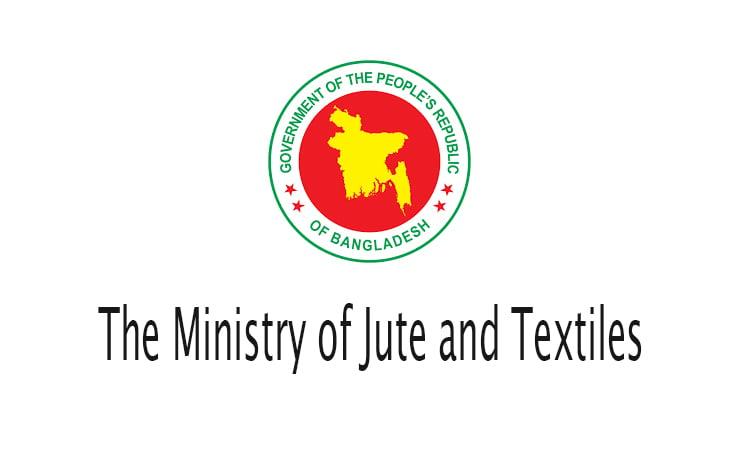News Flash
News Flash

DHAKA, August 9, 2025 (BSS) - Over the past year, the Ministry of Jute and Textiles has taken several initiatives aimed at revitalizing the country's jute and textiles sectors.
These efforts are focused on promoting jute products as an eco-friendly alternative to polythene, reviving state-run mills and boosting international collaboration.
To this end, one of the major steps was the promotion of jute as a sustainable alternative to plastic. The ministry has distributed free jute bags at retail outlets -- Unimart and Shwapno -- in the capital city to encourage consumers to switch from polythene, according to data provided by the ministry's publicity wing recently.
The design and pricing of these bags have been determined to meet the needs of urban shoppers. Supermarket owners have been instructed to motivate customers to bring their own jute bags while shopping.
Moreover, the government has decided to implement the Compulsory Use of Jute Packaging for Products Act, 2010 nationwide, mandating the use of jute bags in all shopping malls, chain stores and raw markets starting November 1, 2024.
Efforts are also underway to revive the country's state-owned jute and textile mills, many of which had been shut down. A reform plan is in motion to attract foreign investment into the Bangladesh Jute Mills Corporation (BJMC).
As part of this initiative, 11 jute mills are now operating under private management, while leasing arrangements are being finalized for other mills.
Besides, the ministry has taken steps to integrate the workers from these closed mills into other state-owned enterprises. The move is aligned with directives from the Ministry of Public Administration to ensure the smooth transition of employees.
During the past year, Textiles and Jute Adviser Sk. Bashir Uddin has worked to strengthen international relations and secure foreign investment in Bangladesh's textile and jute sectors.
Ambassadors from the UAE, Switzerland, Pakistan, China and the United States visited the ministry to discuss expanding trade relations, particularly in textile engineering, the silk industry and the global market for jute products.
One notable development is the planned inauguration of a jute products exhibition corner at the Bangladesh Embassy in London in November 2024. The ministry has also sent investment proposals to various countries, urging them to invest in state-run jute mills and expand the market for Bangladeshi jute products.
As part of its ongoing diversification efforts, the ministry has worked with various stakeholders in the jute sector, including the Jute Diversification Promotion Center (JDPC), the Bangladesh Jute Mills Association (BJMA) and women entrepreneurs to promote the production and export of alternative jute products. The JDPC has organized several exhibitions, training programs and awareness campaigns to encourage the use of jute over plastic products.
Moreover, a significant project is in the pipeline to produce eco-friendly golden bags made from jute cellulose. A Detailed Project Proposal (DPP) for this initiative has been submitted to the Planning Commission and its restructuring is nearing completion.
The ministry has also placed a strong emphasis on skills development and education within the textile sector. The Textile Directorate has updated its recruitment rules and has been working on a concept paper to develop work skills for students in Textile Engineering and Textile Diploma programs.
Several recruitment and training initiatives have been launched to address the growing demand for skilled professionals in the sector.
Besides, the Bangladesh Silk Development Board has been actively involved in enhancing the silk industry, distributing disease-free silk eggs and providing training for silk farmers in the silk expansion zones. The board also organized a series of meetings and workshops to boost the productivity and skills of silk industry stakeholders.
From August to October 2024, a total of Taka 9,58,600 in fines were collected from 82 mobile courts, enforcing the Harmful Use of Jute Packaging in Products Act, 2010. Moreover, during the same period, 10,251 licenses for jute and jute products businesses were issued, generating a revenue of over Taka 2.77 crore.
The ministry has also launched several initiatives to support the financial health of the sector, including leasing arrangements for textile mills and launching the "Advanced Technology-Based Jute and Jute Seed Production and Expansion" project.
Under this project, substantial quantities of jute seeds and fertilizers have been distributed to farmers across 36 districts, promoting the growth of the jute industry in rural areas.